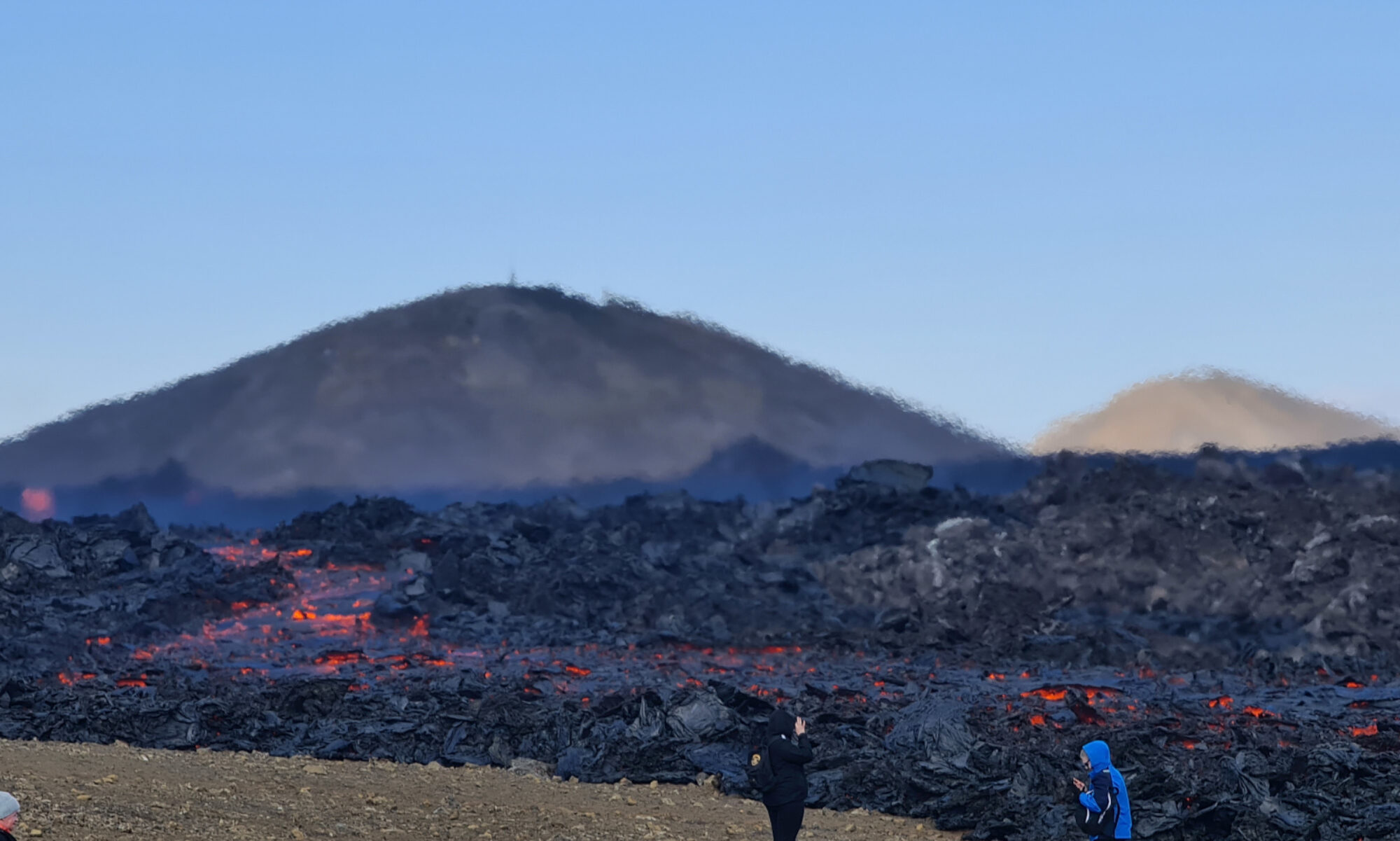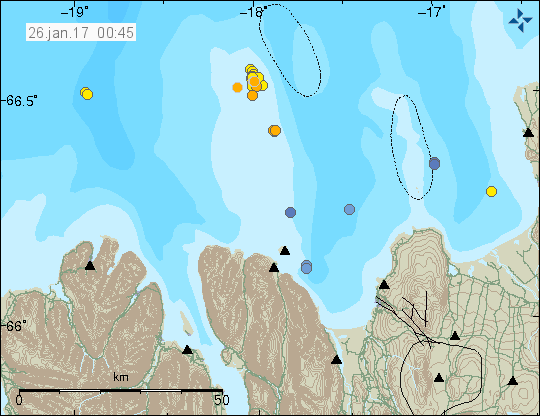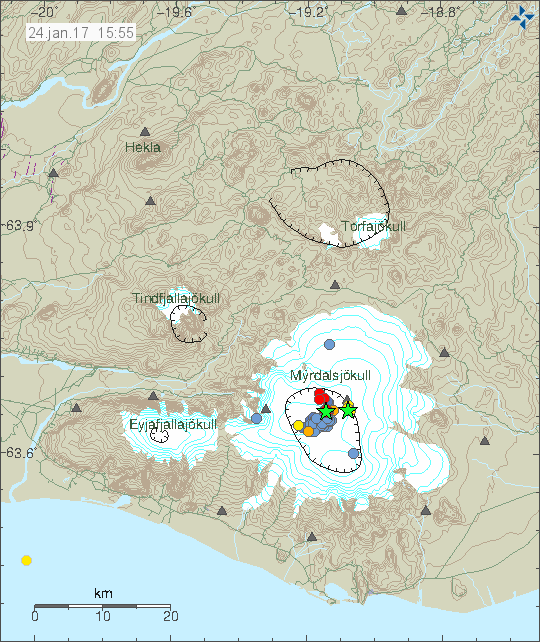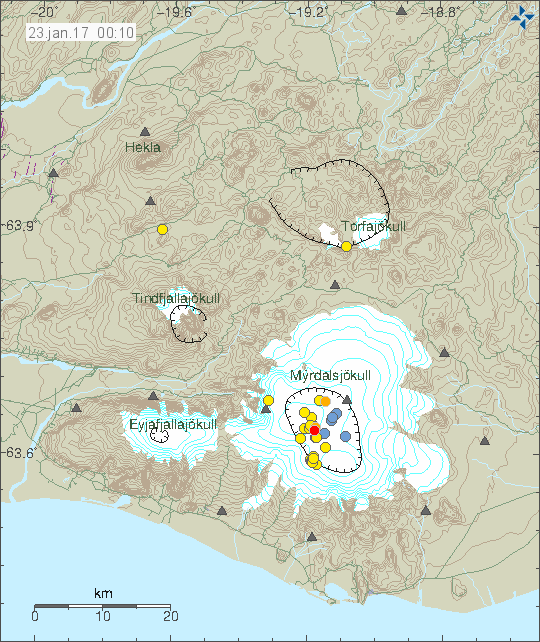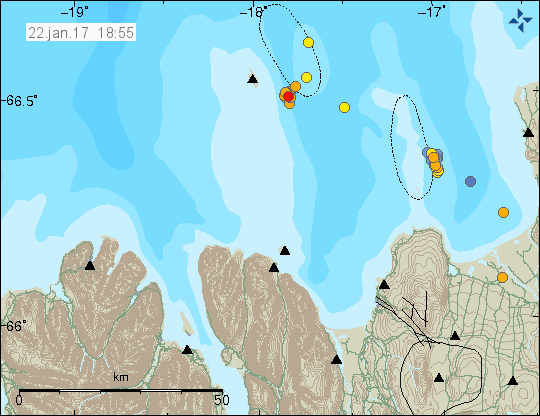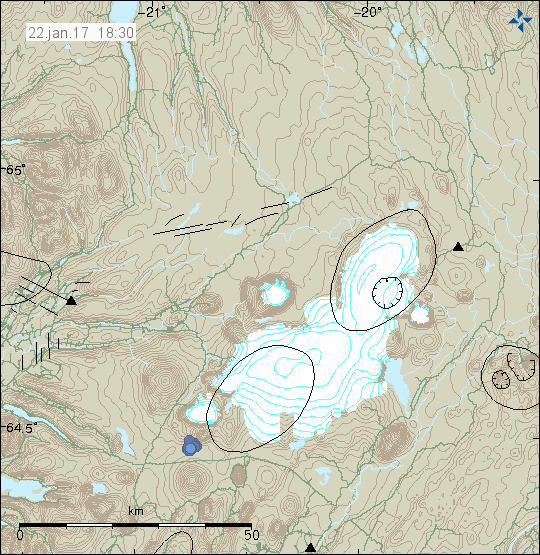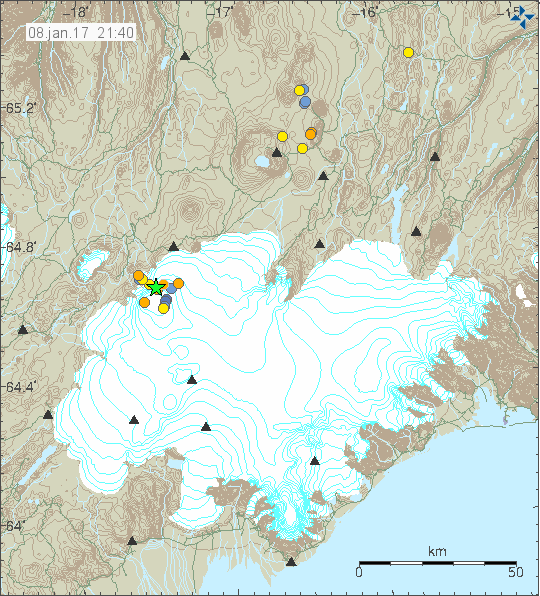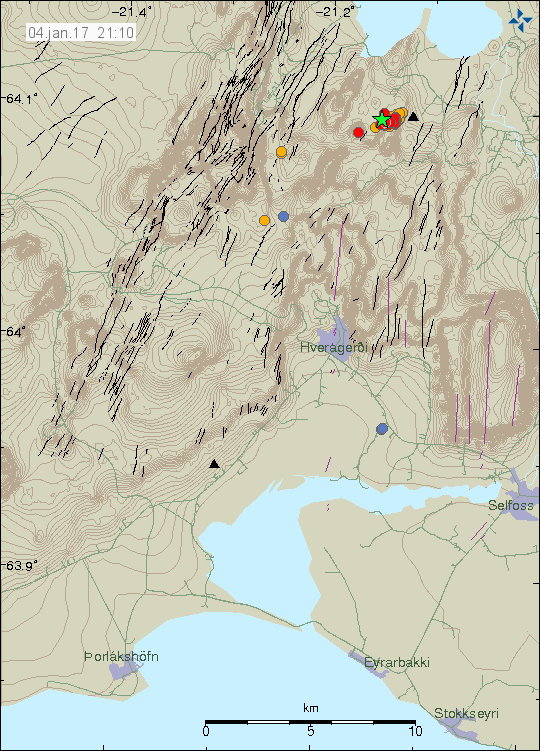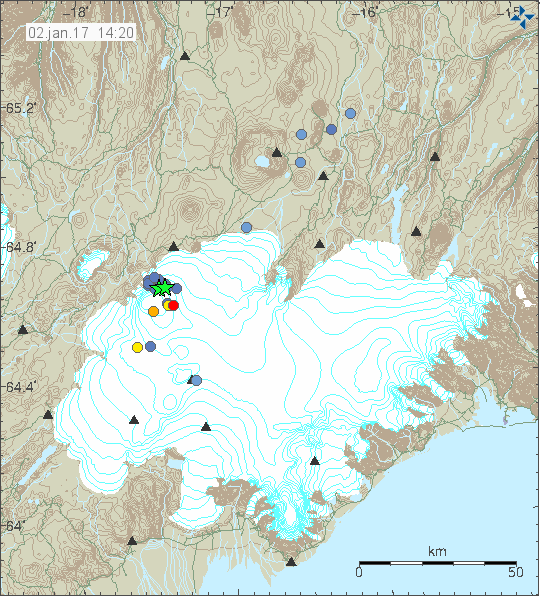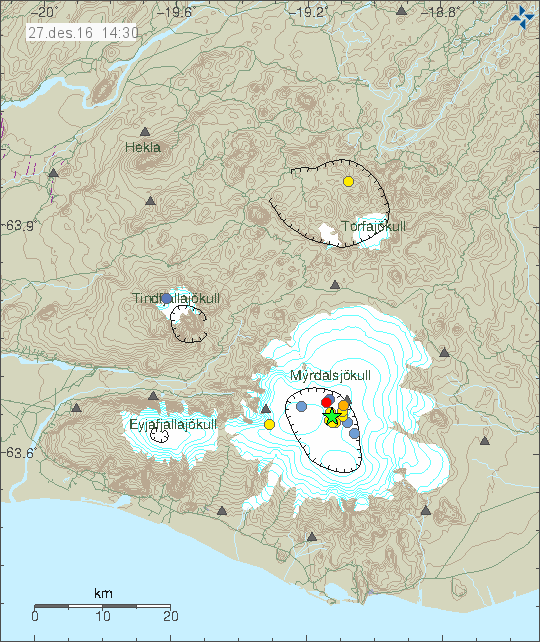Today (26.01.2017) at 15:14 UTC a magnitude 4,3 earthquake took place in Katla volcano. This earthquake was felt in Vík í Mýrdal (village) and nearby area. A second earthquake with the magnitude of 3,0 took place few moments after the largest earthquake, a magnitude 2,9 earthquake (3rd largest) took place soon after the magnitude 3,0 earthquake. Other earthquakes have been smaller in magnitude (at the moment).

The earthquake in Katla volcano, green star is the magnitude 4,3 earthquake. Copyright of this image belongs to Icelandic Met Office.

The magnitude 4,3 earthquake in Katla volcano as it appeared on my geophone in Heklubyggð (distance ~53 km). This image is under Creative Commons licence, please see CC Licence website for more details.
No major change has happened in tremor plots around Katla volcano following this earthquake. Unclear signals on one SIL stations suggest that hydrothermal areas might have gotten exited just before the main earthquake, but that is unconfirmed and unclear if it can be confirmed at all.
This article is going to be updated as new activity happens (if there is a reason to do so).
Update 27.01.2017
Science council of the Civil protection agency in Iceland (Almannavarnir) has issued the following statement. This is a rude translation of that statement since none has been issued in English yet.
Increased risk of eruption in Katla
Earthquake activity in Katla has been unusually high since August 2016, with three earthquakes larger than magnitude 4,0 and many more earthquakes with magnitude 3,0. Earthquake activity is shallow and spread around the caldera. No harmonic tremor has been detected following this earthquake activity. Following this increase in activity small increase in geothermal heat has been observed. GPS station show that small inflation has been taking place since 2010 in the top kilometres of the crust. When activity increases in Katla, as has been the case now, the risk of eruption grows and that has to be considered by the emergency response teams.
(The rest is about Bárðarbunga, just the basic translation of it.)
Since September 2015 Bárðarbunga has been inflating slowly under the caldera. It might be many years until the next eruption, until magma pressure is at the same levels before the eruption started in 2014. It is impossible to exclude new eruptions in next few years. Limited measurements are on geothermal activity in Bárðarbunga, to the best knowledge little has changed in last few months. It is important to monitor geothermal activity due to risk of water collection in the caldera.
My note: Water collection increases the risk of sudden glacier flood from Bárðarbunga.
The news announcement in Icelandic
Fundur í Vísindaráði almannavarna
Auknar líkur á eldgosi í Kötlu (Rúv News)
Donations
Please remember to support my work with donations. Thanks for the support. 🙂
Article updated on 27.01.2017 at 18:53 UTC.
